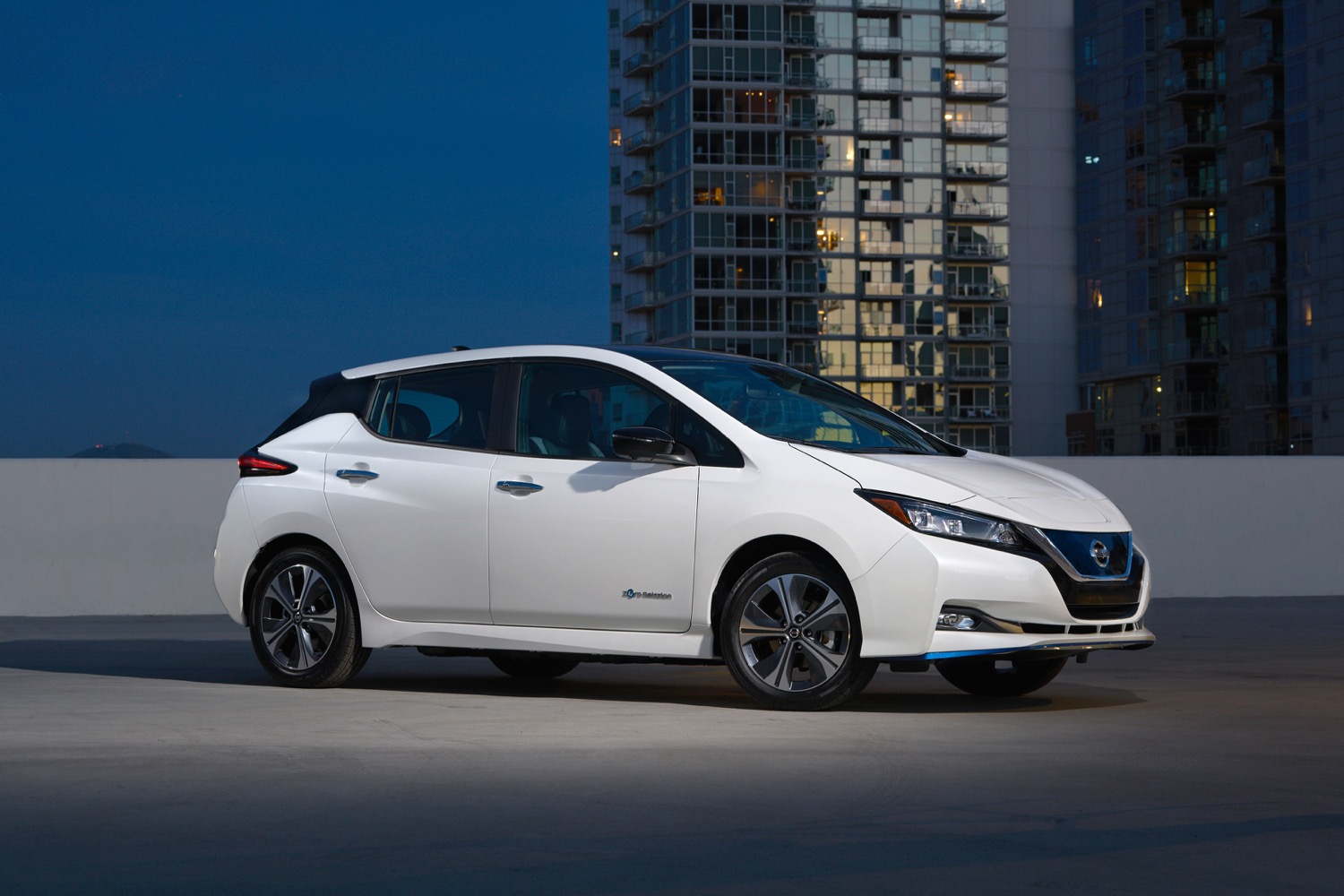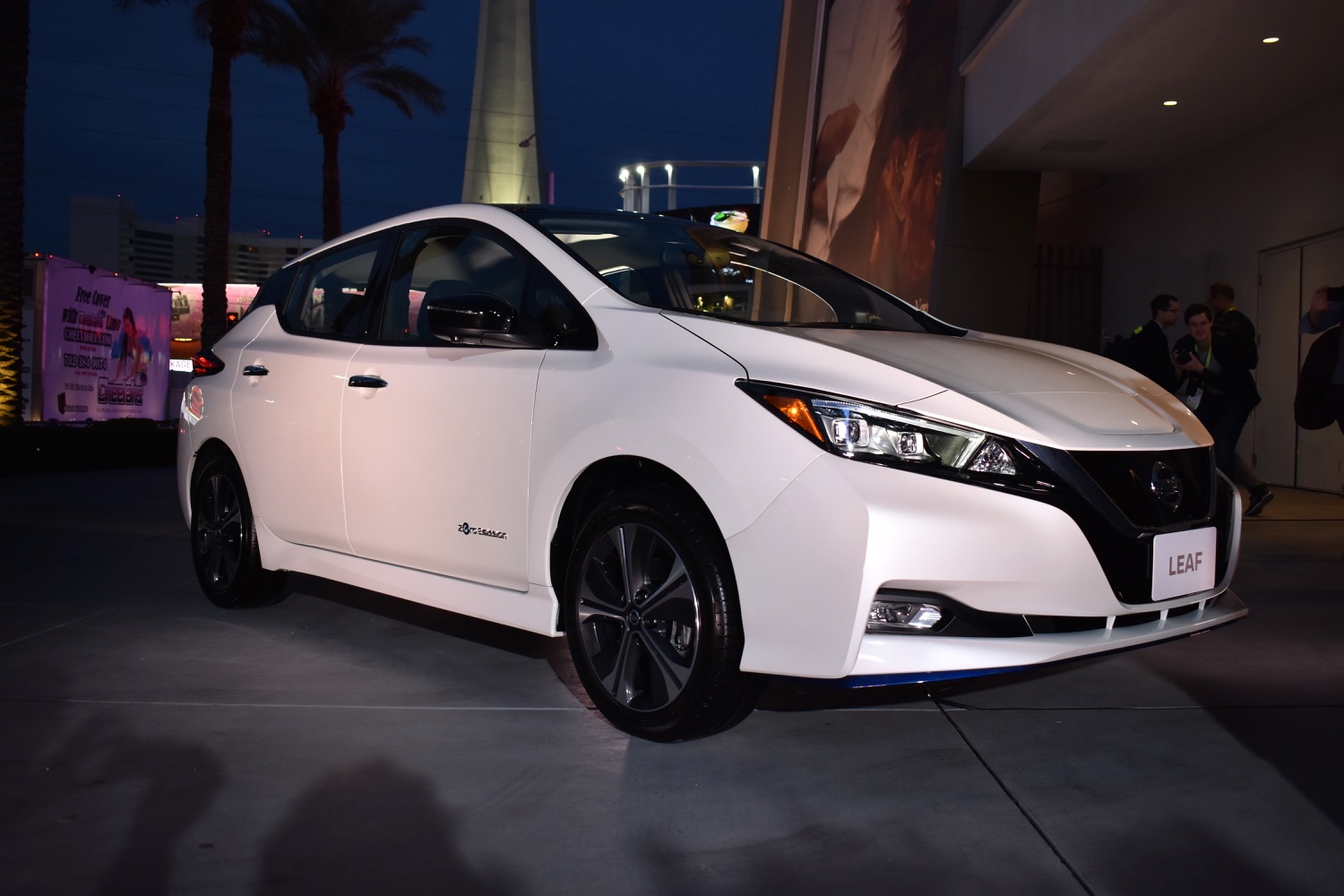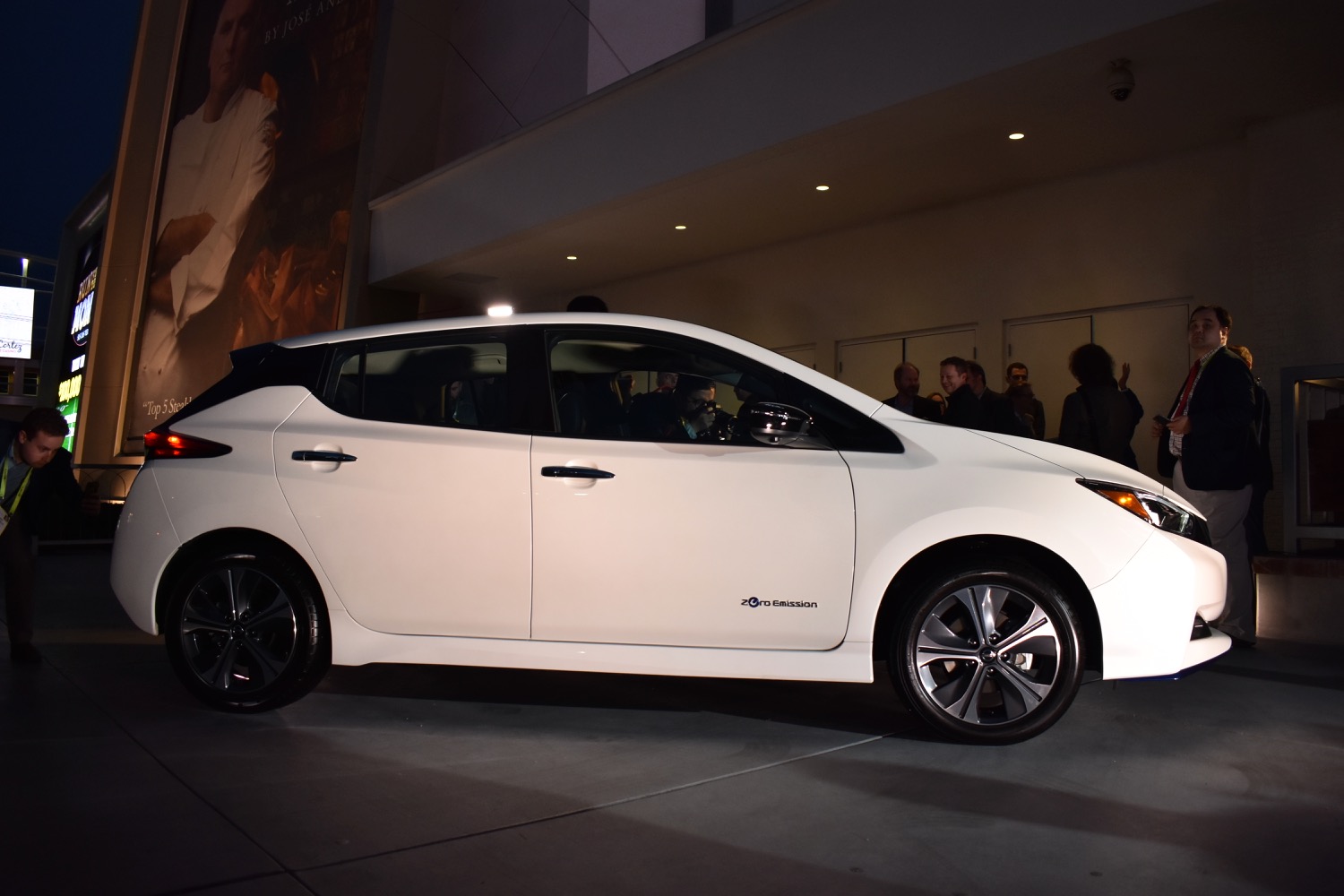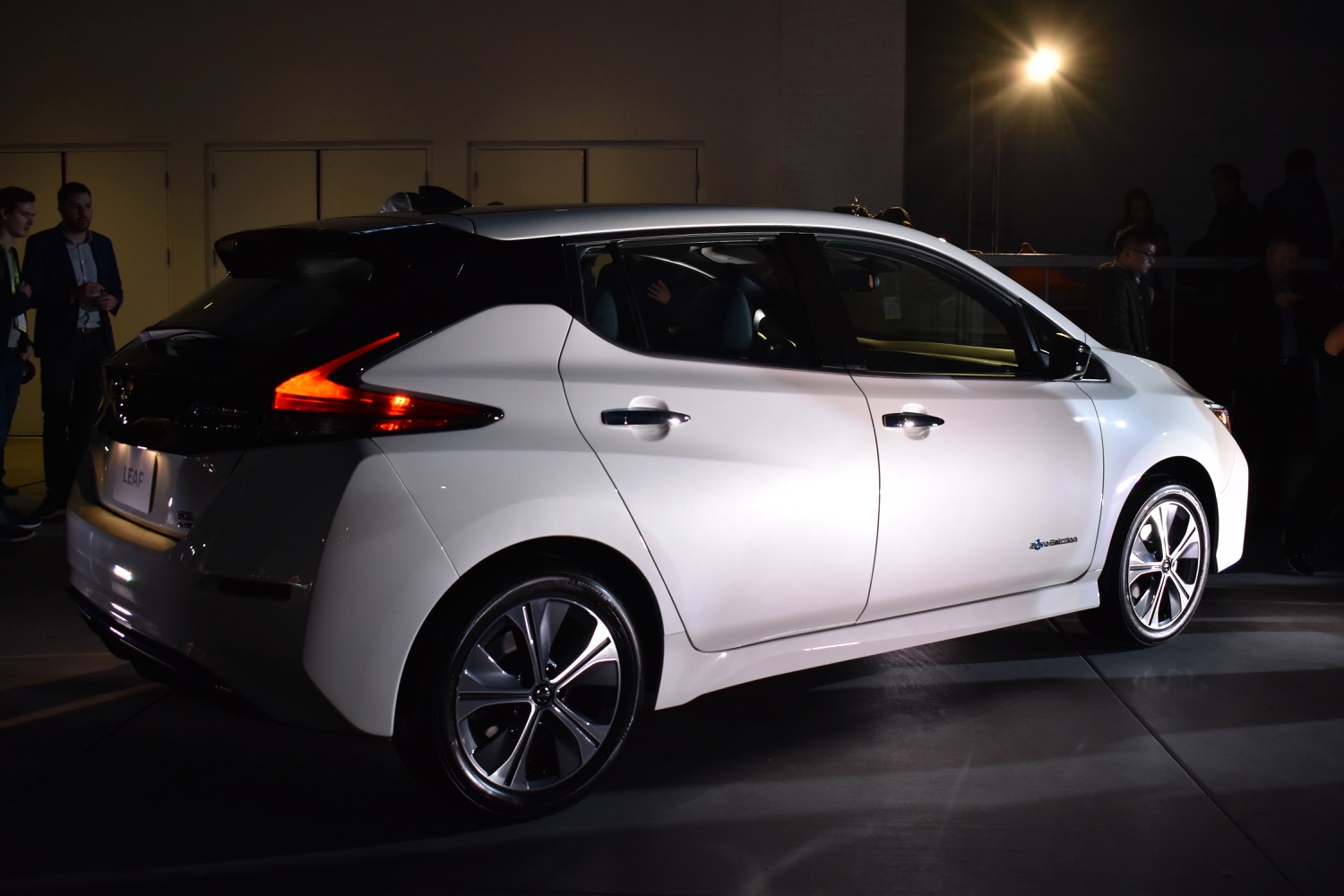The Nissan Leaf was the first modern battery-electric car to be sold in large numbers, but Nissan’s rivals have caught up. Other automakers now offer electric cars with at least 200 miles of range at relatively affordable prices, while the current-generation Nissan Leaf could only muster 150 miles of range upon its launch. Now the Leaf is getting an upgrade.
More CES 2019 coverage
- Atlis emerges from stealth mode to promise an electric pickup truck
- Lamborghini packs more power into the 2020 Huracan Evo without forgetting tech
- Can Harley-Davidson’s electric LiveWire convince hog riders to go green?
- C-V2X system helps cars navigate intersections without a line of sight
Unveiled at CES 2019, the 2019 Nissan Leaf e+ not only offers more range, but also more power. The new model has 226 miles of range, courtesy of a 62-kilowatt-hour lithium-ion battery pack (up from 40 kWh in the base Leaf). It also produces 214 horsepower and 250 pound-feet of torque, compared to the 147 hp and 236 lb.-ft. of the base model. Drive is still to the front wheels, and no other major changes were made to the car.
The e+ may be a better Leaf, but its performance is only adequate compared to rival electric cars. The Chevrolet Bolt EV offers 238 miles of range from a 60-kWh battery pack. The Chevy has less horsepower (200 hp) but more torque (266 lb.-ft.) than the Nissan. Both the Hyundai Kona Electric and upcoming Kia Niro EV use the same 64-kWh battery pack and electric motor, which produces 200 hp and 290 lb-ft of torque in the Kona (the Niro is rated at an extra lb.-ft. of torque). The Kona boasts 258 miles of range, while the Niro EV gets an estimated 239 miles per charge. The Tesla Model 3 could also top the Leaf e+, if Tesla ever gets around to making the cheaper $35,000 version.
It’s important to mention pricing. The base Leaf may have less range than the cars mentioned above, but it’s also less expensive than most of them. Nissan won’t reveal pricing for the Leaf e+ just yet, but customers will have to pay a premium for that extra range and power. That could close the pricing gap, without offering segment-leading range.
The Leaf does at least have a couple of unique tech features. Like the base model, the Leaf e+ will be offered with e-Pedal, which blends regenerative braking with the conventional friction brakes, allowing the driver to pretty much avoid using the brake pedal. Both the base Leaf and the e+ are also available with ProPilot Assist, a driver-assist system that basically combines adaptive cruise control with automated lane centering.
The 2019 Nissan Leaf e+ will go on sale in the United States within two to three months, Denis Le Vot, head of Nissan North America, said at the car’s Las Vegas unveiling. We’re eager to see how it stacks up against other electric cars in the real world.





















